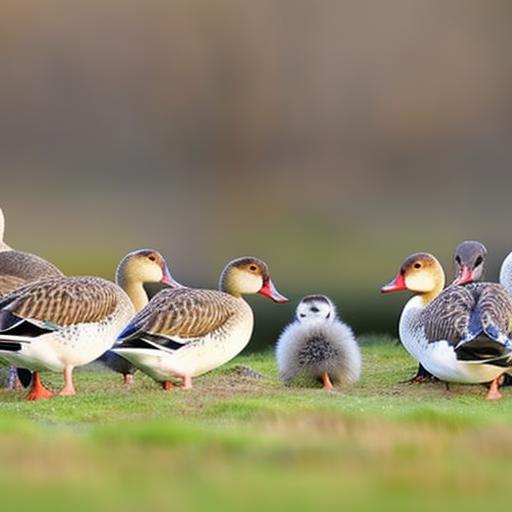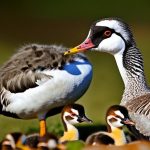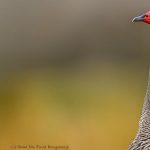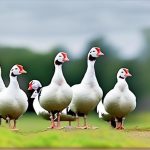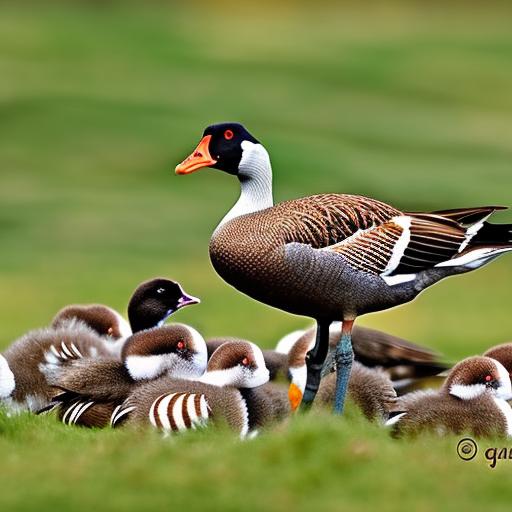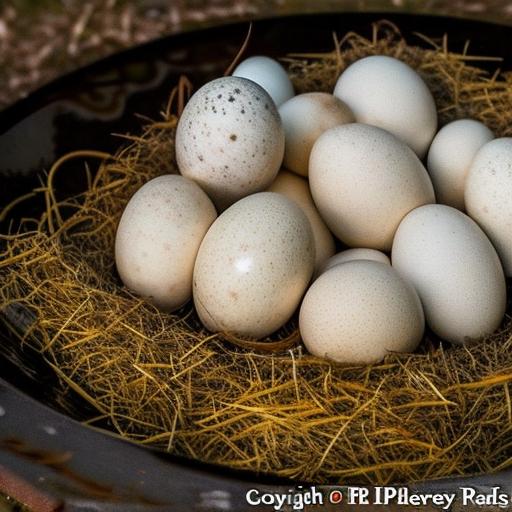Breeding geese has a long history in the United Kingdom, dating back centuries. Geese were originally bred for their meat and feathers, and they were an important source of income for many farmers. Today, breeding geese is not only a profitable venture for farmers but also a popular hobby for many enthusiasts.
Breeding geese offers several benefits for farmers and hobbyists alike. Firstly, geese are relatively low-maintenance animals that require minimal care compared to other livestock. They are hardy and adaptable, making them suitable for various climates and environments. Additionally, geese are known for their high fertility rates, which means that breeders can expect a large number of eggs and goslings each breeding season. Finally, there is a high demand for goose meat and products in the UK, making it a lucrative market for breeders.
Key Takeaways
- Breeding geese in the UK requires careful consideration of breed selection, environment, feeding, and health management.
- The ideal environment for breeding geese includes access to water, shelter, and adequate space for mating and nesting.
- Understanding the breeding cycle of geese is crucial for maximizing fertility and hatching rates.
- Proper feeding and care are essential for raising healthy goslings, and managing their health and wellbeing is key to successful breeding.
- Marketing and selling breeding geese and their products can be a profitable venture for UK farmers and hobbyists, but challenges such as disease outbreaks and changing consumer demand must be navigated.
Choosing the Right Breeds of Geese for Breeding in the UK
There are several popular breeds of geese in the UK that are suitable for breeding. The most common breeds include the Embden, Toulouse, and Chinese geese. The Embden is a large breed known for its white feathers and excellent meat quality. Toulouse geese are also large and have gray feathers, making them popular for both meat production and exhibition purposes. Chinese geese, on the other hand, are smaller in size and have distinctive knobbed beaks. They are known for their high egg production and are often kept for their eggs rather than meat.
When choosing breeds for breeding, there are several factors to consider. Firstly, you should consider your specific goals and objectives as a breeder. Are you primarily interested in meat production or egg production? Do you plan to sell goslings or keep them for yourself? Additionally, you should consider the climate and environment in which you will be breeding geese. Some breeds are more suited to colder climates, while others thrive in warmer conditions. Finally, you should also consider the availability of breeds in your area and the demand for their products.
Setting Up the Ideal Environment for Breeding Geese in the UK
Creating a suitable environment for breeding geese is crucial for their health and productivity. Geese require adequate housing that protects them from the elements and predators. A well-ventilated and spacious shelter is essential to prevent respiratory issues and allow for natural behaviors such as nesting and mating.
Geese also require access to outdoor space for grazing and exercise. A fenced-in area with access to water is ideal, as geese are water-loving birds. They should have access to clean, fresh water at all times for drinking and bathing.
Understanding the Breeding Cycle of Geese in the UK
Geese have a distinct breeding cycle that breeders should be familiar with to maximize breeding success. The breeding season typically begins in late winter or early spring when geese reach sexual maturity. During this time, male geese, known as ganders, will display courtship behaviors such as honking and flapping their wings to attract females.
Once a pair has formed, they will engage in mating behavior, which involves the gander mounting the female and fertilizing her eggs. After mating, the female goose will begin laying eggs, usually one egg every other day until she has laid a clutch of 8-12 eggs.
Tips for Feeding and Caring for Breeding Geese in the UK
Proper nutrition is essential for breeding geese to ensure their health and reproductive success. Breeding geese have higher nutritional requirements than non-breeding geese due to the energy demands of egg production.
A balanced diet for breeding geese should consist of a combination of grains, greens, and protein sources. Commercially available goose feed can provide a good base diet, but supplementing with fresh greens such as grass, lettuce, and spinach is also beneficial. Additionally, providing a source of calcium, such as crushed oyster shells or eggshells, is important for eggshell formation.
Managing the Health and Wellbeing of Breeding Geese in the UK
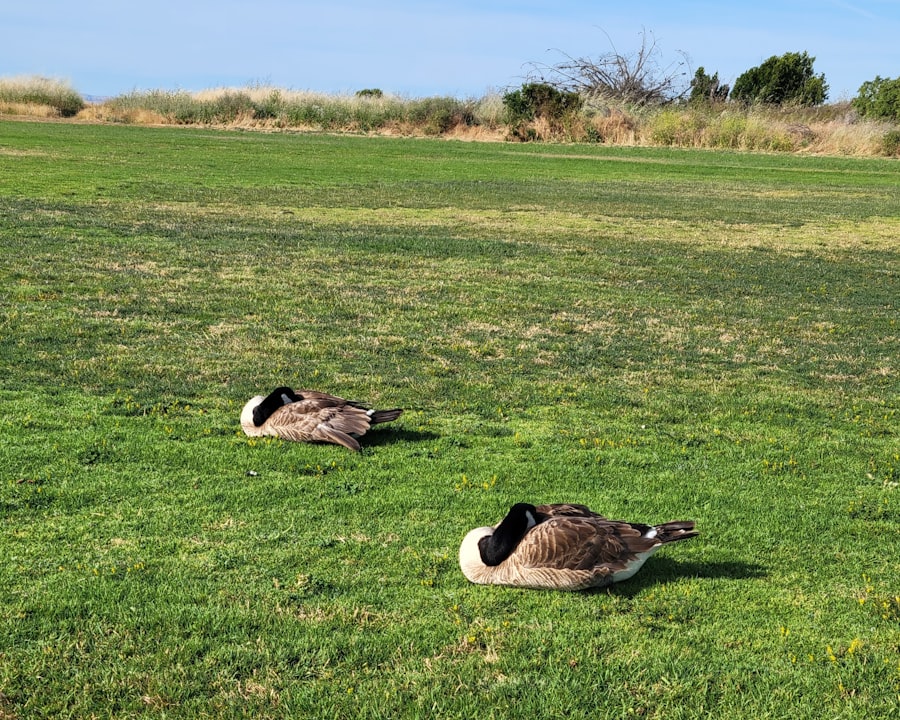
Like any livestock, breeding geese are susceptible to various health issues that breeders should be aware of. Common health issues in geese include respiratory infections, parasites, and foot problems. Regular health checks and vaccinations can help prevent and manage these issues.
Preventative measures such as proper hygiene, regular cleaning of housing areas, and providing clean water can also help maintain the health and wellbeing of breeding geese. It is important to monitor geese for any signs of illness or distress and seek veterinary care if necessary.
Maximizing Fertility and Hatching Rates in Breeding Geese in the UK
Several factors can affect the fertility and hatching rates of breeding geese. Firstly, ensuring a balanced diet and proper nutrition is crucial for reproductive success. A lack of essential nutrients can lead to poor egg quality and low fertility rates.
Providing a suitable nesting area is also important for successful breeding. Geese prefer to nest on the ground in a secluded area away from disturbances. Providing nesting materials such as straw or hay can encourage geese to lay their eggs in the designated area.
Raising Goslings: Essential Care and Management for Breeding Geese in the UK
Once goslings hatch, they require special care and attention to ensure healthy growth and development. Goslings should be kept in a warm and dry environment with access to clean water for drinking and swimming.
A balanced diet is crucial for gosling growth. Commercially available gosling feed or a mixture of finely chopped greens, grains, and protein sources can provide the necessary nutrients for healthy development.
Marketing and Selling Breeding Geese and Their Products in the UK
There are several opportunities for selling breeding geese and their products in the UK. The demand for goose meat and eggs is high, especially during festive seasons such as Christmas. Additionally, there is a market for goslings, both for individuals looking to raise geese and for other breeders.
To market and promote your breeding business, it is important to establish a strong online presence through a website or social media platforms. You can also consider participating in local farmers’ markets or agricultural shows to showcase your products and connect with potential customers.
Challenges and Opportunities in Breeding Geese for UK Farmers and Hobbyists
While breeding geese can be a rewarding venture, there are also challenges that breeders may face. One common challenge is the management of predators such as foxes or birds of prey, which can pose a threat to geese and their eggs.
Another challenge is the fluctuating demand for goose products throughout the year. Breeders may need to plan their breeding cycles accordingly to meet market demands during peak seasons.
Despite these challenges, there are also opportunities for growth and expansion in the breeding industry. The increasing interest in locally sourced and ethically raised food products presents an opportunity for breeders to market their geese as a premium product. Additionally, the growing popularity of hobby farming and self-sufficiency has created a demand for goslings and breeding stock.
In conclusion, breeding geese in the UK can be a rewarding and profitable venture for farmers and hobbyists alike. By choosing the right breeds, providing a suitable environment, and implementing proper care and management practices, you can maximize breeding success and produce healthy, high-quality geese and their products. While there may be challenges along the way, the opportunities for growth and success in the industry are abundant.
If you’re interested in breeding geese in the UK, you may also find this article on poultrywizard.com helpful. It provides valuable information on how to insulate a chicken coop, which can be beneficial for creating a comfortable and suitable environment for your geese. Insulation helps regulate temperature, keeping the coop warm during colder months and cool during hotter months. To learn more about insulating your coop, check out this informative article: How to Insulate a Chicken Coop.
FAQs
What is breeding geese in the UK?
Breeding geese in the UK refers to the process of raising geese for the purpose of producing meat, eggs, or feathers.
What are the common breeds of geese in the UK?
The common breeds of geese in the UK include Embden, Toulouse, Chinese, and African.
What is the best time to breed geese in the UK?
The best time to breed geese in the UK is during the spring season, which is from March to May.
What is the ideal temperature for breeding geese in the UK?
The ideal temperature for breeding geese in the UK is between 10°C to 20°C.
What is the lifespan of geese?
The lifespan of geese is around 10 to 25 years, depending on the breed and the quality of care they receive.
What is the gestation period of geese?
The gestation period of geese is around 28 to 30 days.
What is the average weight of a mature goose?
The average weight of a mature goose is around 4 to 6 kg.
What is the diet of geese?
The diet of geese includes grass, grains, and other plant materials. They also require access to clean water for drinking and swimming.
What are the common health issues that geese face?
The common health issues that geese face include respiratory infections, parasites, and foot problems. Regular veterinary check-ups and proper care can help prevent these issues.
Meet Walter, the feathered-friend fanatic of Florida! Nestled in the sunshine state, Walter struts through life with his feathered companions, clucking his way to happiness. With a coop that’s fancier than a five-star hotel, he’s the Don Juan of the chicken world. When he’s not teaching his hens to do the cha-cha, you’ll find him in a heated debate with his prized rooster, Sir Clucks-a-Lot. Walter’s poultry passion is no yolk; he’s the sunny-side-up guy you never knew you needed in your flock of friends!

